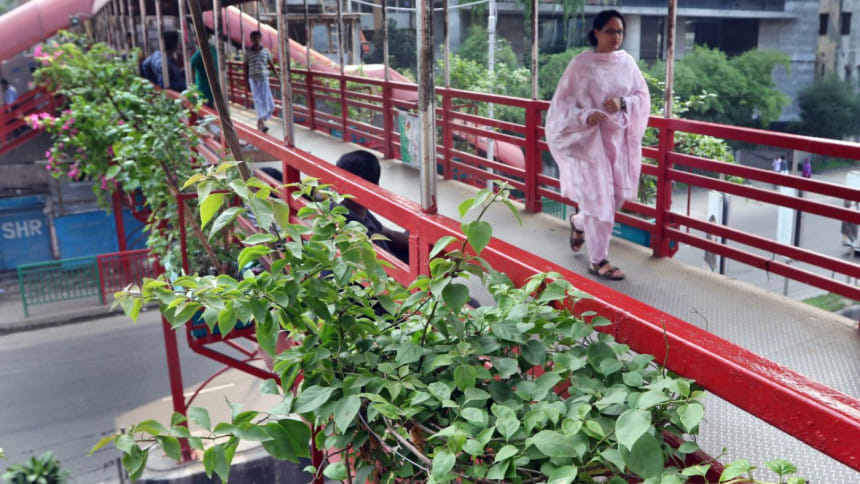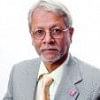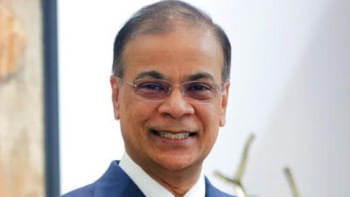United in Division

You do not necessarily have to be an Awami League aficionado to appreciate that the two mayors of Dhaka City, albeit split along cardinal lines, are working in harmony for the betterment of the capital. This task is not actually akin to running a candy shop, considering that Dhaka is among the most populated cities in the world – eleventh - with over fifteen million people hustling and bustling within a space of 300km2 or so. That makes it also the eleventh most congested city in the world.
The sceptics who twisted their upper lip, doubting the benefits of splitting the mega city have been silenced for now. Some of them may have actually preferred a war of words extending to garbage-slinging among the two. That has never happened, and the two remain apparently good friends vying each other for wreaths of achievements, but never rejoicing at the fumble or even a tumble of the other. Such concord for a common purpose that could easily have slid into a nasty blame-game remains the strongest armament of both, as they are learning from each other, and sharing their unique experiences.
I am not making my judgement on the basis of any interview with either of the mayors, but base my observation from evidences I gathered from the city while walking, which I do on a daily basis, despite the grievances of many that most pavements are uneven, that the streets are mostly dark, dirty and unsafe. The cynics will lament my good fortune, because in spite of reported incidents of mugging and drugging, Yours Worried has remained unscathed, and so have many of you; and Dhaka is not among the worst in the world.
The first we took notice of the incumbent mayors was perhaps when powerful operators, unseen though they may be, were dislodged by the dismantling of illegal parking of trucks and buses, an issue few even considered mentioning in their election pledge, local or national, let alone ponder on implementing.
Encroachment of pedestrian ways is being dealt with every day. Several roadsides have been cleared. Temporary-turned-permanent establishments have been removed, much to the chagrin of the owners, but the city needs to have its arteries cleaned for it to breathe.
You will rarely see coverage of freshly painted foot over-bridges, some adorned with live flowers and foliage, for much of our media generally thrives on the woes of the nation and the ahhs of their readers and viewers. More citizens are using overpasses to cross traffic-heavy roads, but many still find it convenient and allowable to traverse at street level, risky though the long-standing practice is.
Some markets that began as ad-hoc kiosks a decade or two ago have been removed, and large chunks of city space have been cleared for appropriate use. Several others will face the same music, not because the mayors want to install their personal businesses; citizens have embraced such moves in good spirit.
Garbage collection locations (the learned call them STS or Secondary Transfer Station) have been constructed at several parts of the city. At other points, where space has not been made available for such constructions, movable steel barriers on wheels have at least shielded the filth from the passers-by. Such finesse we are not used to.
Almost overnight, we lost some of the small roadside dustbins among thousands installed, that to a great extent were appropriate for this city by size and design. Those who favour the ruling party are trying to use them as rubbish bins for day-to-day use; those who are in the opposition are throwing their trash everywhere but inside the bin. It is reported that druggies are stealing them due to their resale value, but some could have been removed just for the heck of disobeying the establishment.
Illegal constructions at Fulbaria near Gulistan and New Market have been demolished, as a result of which it has been possible to widen certain roads, a much needed component to facilitate traffic and ease the perennial congestion.
LED lamps are now brightening some of our streets, if those with 'vision' can observe. But, first they have to roll down the dark glass of their vehicles, or in the least, remove their sunglasses; yes, some of us do fancy them to refrain from having to watch the 'filth' of the city they cannot otherwise contemplate leaving.
An educated guess is that all removals and breakages have been affected following magistracy notices and under supervision of bona fide officers. Any departure from that procedure would have prompted a series of litigations that would have kept our mayor duo unproductively active.
The city obviously still has many shortcomings; public toilets, paved pavements, small parks as breathing space, widespread lighting, and covered drainage to name a few. But in a little over a year, the pair have shown resolve to act and not dwell in the past.
Obviously, there are political and non-formal clouts of all shapes, shades and sizes, and they may be scraping the earth with their feet, perturbed as they are, but they do not make as much as a whimper, for they know that in the endeavours of the two mayors there is not an iota of personal gain involved.
The City Corporations do not need money as such, because they are 'capital'-ists (pun intended), but the one component they could do very well do with is greater cooperation of the citizens. For instance, do not throw everything on the street, please.
Mayor Mohammad Sayeed Khokon of Dhaka South City Corporation and Mayor Annisul Huq of Dhaka North, take a bow!
The writer is a practising Architect at BashaBari Ltd., a Commonwealth Scholar and a Fellow, a Baden-Powell Fellow Scout Leader, and a Major Donor Rotarian.

 For all latest news, follow The Daily Star's Google News channel.
For all latest news, follow The Daily Star's Google News channel. 



Comments